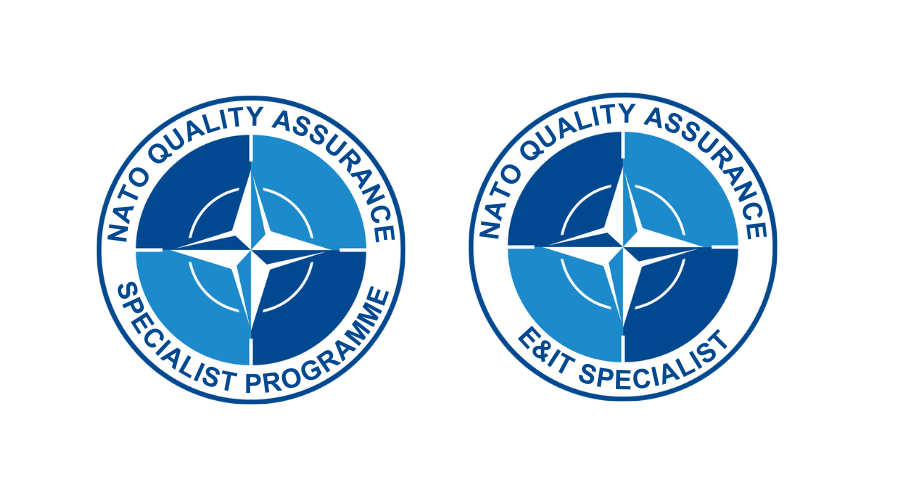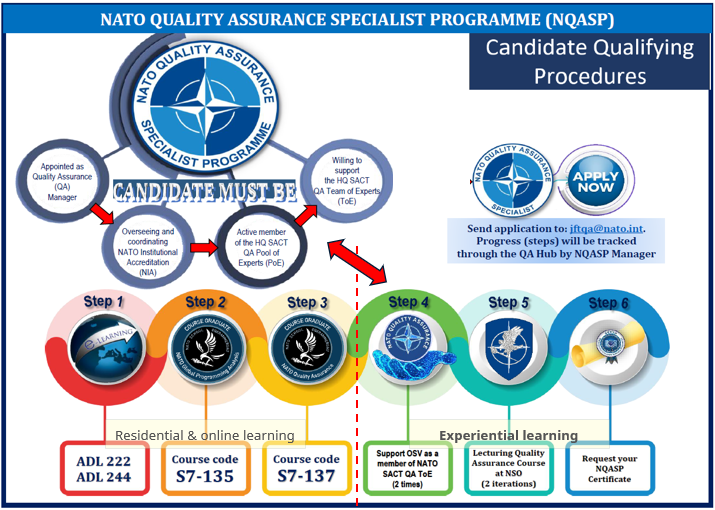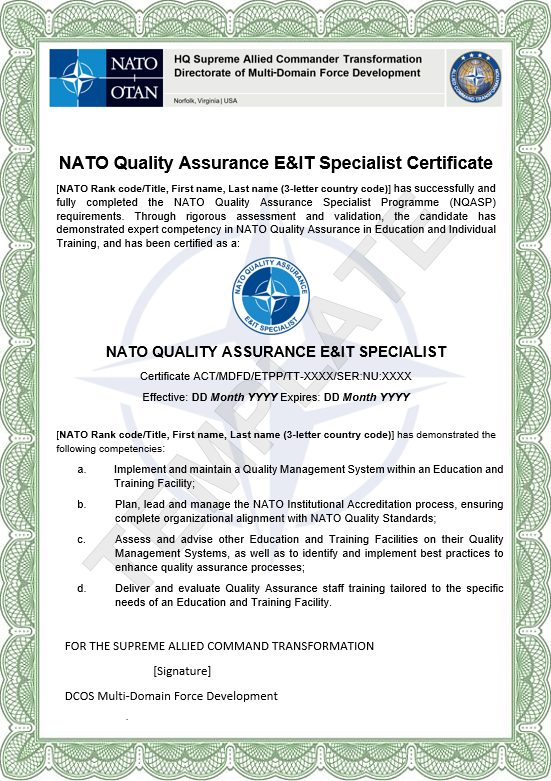
The NATO Quality Assurance Specialist Programme (NQASP) is a structured initiative designed to formally recognize and certify experts in NATO Quality Assurance (QA) within the Education and Individual Training (E&IT) community. As the demand for institutional accreditation and QA support continues to grow, this programme aims to enhance NATO’s QA Programme capabilities and resilience by leveraging the expertise of qualified professionals from the external QA Pool of Experts (QA POE).
Why NQASP?
Over the years, NATO’s QA Programme has seen steady growth, with new Education and Training Facilities (ETFs) undertaking the institutional accreditation process. This increase has placed bigger demands on the NATO QA Team of Experts (QA TOE), which conducts multiple On-Site Visits (OSVs) annually. To maintain the highest standards while managing this workload efficiently, the NQASP provides a pathway for experienced professionals to contribute meaningfully to NATO QA Programme efforts and be individually recognized for their support.
By certifying individuals who meet a defined set a requirements, the programme ensures that accredited institutions maintain better compliance, share best practices, and create a community of recognized QA E&IT specialists.
How the Programme works
The NQASP follows a phased approach to implementation:
1. Preparation phase
Establishes governance and certification standards.
Engages stakeholders, including the external QA POE.
Develops digital tools for application and certification management on the QA Hub.
2. Pilot certification phase
Selects a small group of qualified candidates for initial certification.
Issues the first NATO QA Specialist Certificates.
Evaluates the pilot phase to refine processes.
3. Full implementation phase
Expands certification to all QA Managers in NATO-accredited ETFs.
Builds a sustainable model for annual certification cycles.
4. Long-term integration & growth
Certified specialists contribute to OSVs and QA training courses.
Ensures continuity and expertise within NATO’s QA framework, even during personnel transitions.

Who can apply?
Candidates must meet a set of requirements, including:
Completion of key NATO QA courses at NATO School Oberammergau (NSO). (online and residential - QA and Global Programming Courses (S7-135 and S7-137, plus ADL 222 and 244).
Active involvement in NATO-accredited ETFs as QA managers.
Proven experience in leading institutional accreditation processes.
Participation in OSVs and NATO QA training as an instructor or expert in the QA Course at NSO.

Successful applicants receive the NATO Quality Assurance Specialist Certificate, valid for six years—aligning with the institutional accreditation cycle.

The impact of NQASP
By developing a certified cadre of QA specialists, NATO strengthens its ability to uphold high-quality education and training standards. The programme enhances institutional credibility, promotes knowledge-sharing across accredited facilities, and ensures the long-term sustainability of NATO’s Quality Assurance Programme.
With this initiative HQ SACT will take another step toward creating a resilient, expert-driven QA community—one that will continue to support and improve excellence in NATO`s Education and Individual Training.
More details will be presented during the Annual Discipline Forum 25.
